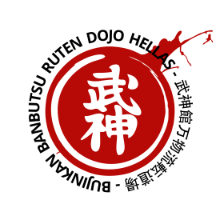The history of Ninjutsu is a tapestry woven with threads of mystery, innovation, and survival, dating back to feudal Japan.
Emerging during the tumultuous Sengoku period (15th-17th centuries), this martial art originated as a response to the changing dynamics of warfare, transforming skilled individuals into clandestine agents known as ninja.
Origins and Evolution: The exact origins of Ninjutsu are elusive, owing to the secretive nature of its practitioners and the lack of written records. Rooted in the provinces of Iga and Koka, two regions known for their resistance against powerful warlords, the art evolved as a collection of techniques and strategies to counter the dominance of samurai warriors. Ninja adapted their skills to exploit the vulnerabilities of traditional warriors, employing stealth, espionage, and sabotage to achieve their objectives.
Adaptive Warfare: The ninja's abilities to navigate various terrains, use disguises, and employ unconventional weaponry allowed them to infiltrate enemy territories and gather vital intelligence. They honed skills such as camouflage, lock-picking, and the use of poisons, elevating Ninjutsu from mere combat techniques to a comprehensive system of espionage and survival.
Mystique and Legends: The aura of secrecy surrounding Ninjutsu contributed to its mythic status. Tales of ninja performing superhuman feats, disappearing into thin air, and possessing otherworldly abilities added to their enigmatic reputation. These legends often blurred the lines between fact and fiction, making it challenging to distinguish historical truths from embellished narratives.
Decline and Modern Revival: As Japan entered the Edo period, the need for covert warfare diminished, leading to a decline in the prominence of the ninja. However, their legacy endured through folklore, literature, and popular culture. In the 20th century, Ninjutsu experienced a revival, spearheaded by figures such as Toshitsugu Takamatsu (10-03-1889 to 2-4-1972 …also known as “The Mogolian Tiger”) and his disciple Masaaki Hatsumi (2-12-1931). These modern practitioners sought to preserve the techniques and philosophies of Ninjutsu while adapting them to contemporary contexts.
Contemporary Significance: Today, Ninjutsu continues to capture the fascination of martial artists, historians, and enthusiasts alike. While the historical accuracy of many ninja tales remains debated, the principles of adaptability, stealth, and strategic thinking inherent in Ninjutsu have transcended time. Modern practitioners study the art for self-defense, personal development, and to glean insights into unconventional strategies.
Additionally, Ninjutsu has found practical applications in the military, with special forces and army units incorporating its techniques into their training regimens. Its emphasis on stealth, intelligence gathering, and swift, effective combat tactics aligns with the demands of modern warfare, making Ninjutsu a valuable asset for those in elite military and special operations units. This further underscores the enduring relevance and adaptability of Ninjutsu in contemporary contexts.
In summary, the history of Ninjutsu is a journey through the shadows of Japan's past, offering glimpses into a world of intrigue, innovation, and covert mastery. From its origins as a response to changing warfare to its resurgence in the modern era, Ninjutsu's legacy endures as a testament to the enduring appeal of the ninja mystique.
We are also proud to serve, with respect, patience, and reverence, this unique martial art.


